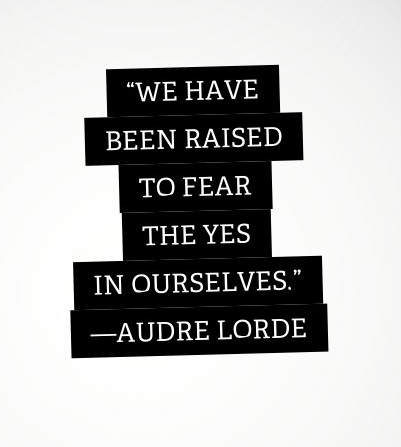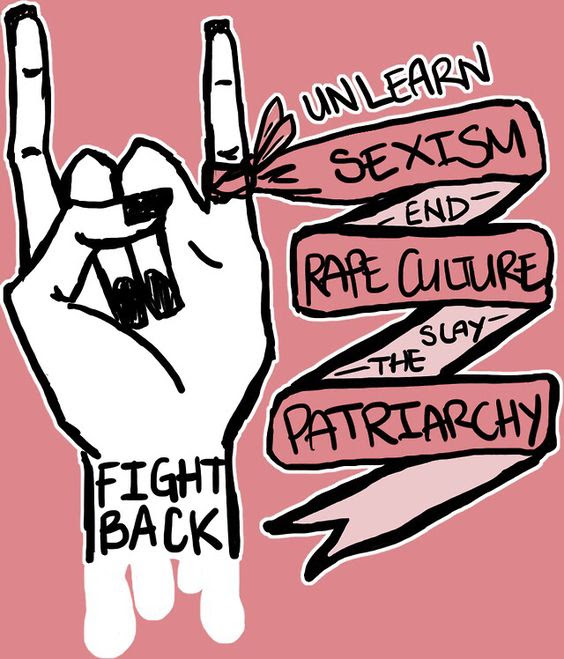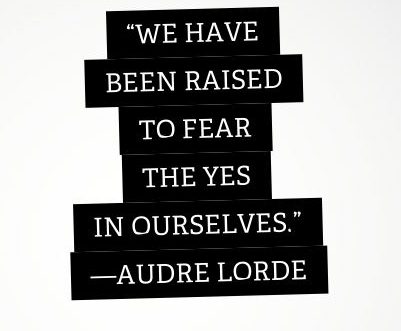What Social Justice, Pleasure & Consent Have in Common
 Social Justice is sexy in the way that consent is sexy. When people are cared for, when their needs and desires are met, when they are invited to participate—whether it’s in democracy or sex—when we choose to work collaboratively, it’s hot. It’s attractive. It’s something people want to be a part of. It’s infectious.
Social Justice is sexy in the way that consent is sexy. When people are cared for, when their needs and desires are met, when they are invited to participate—whether it’s in democracy or sex—when we choose to work collaboratively, it’s hot. It’s attractive. It’s something people want to be a part of. It’s infectious.
There is pleasure in seeking and creating social justice. We work together to create something the way we do in intimacy—we listen, respond, build, check-in, make more love, make more art, make fun and we play. It’s a powerful approach to life to put social justice and consent at the center. It’s an approach that respects the intrinsic worth of all persons, instead of seeing them in terms of how “useful” they are (i.e. what they can produce).
We live within invisible systems of power that affect our lives every day, to the point where we don’t see the waters we swim in. We are taught to accept and not question these systems of power that privilege a minority at the expense of the majority. This affects how we see every part of life: from the material inequalities that keep some people in poverty while others inherit substantial wealth and class privilege, to subtle and overt forms of racial bias that leave people of color susceptible to discrimination and violence in the US. And it absolutely affects how we see gender and sexuality: the roles we perform according to our gender, what we feel we’re allowed to desire and ask for, the level of safety we feel in our sexual self-expression… these are just a few of the many ways our sexuality is shaped by society.
For these reasons, when we step into spaces that consciously work to address identity, equality and power, it feels radically different–sometimes in a way that’s difficult to explain. Most of us learn next to nil about how to communicate and broach sensitive topics, so they routinely get avoided. Sex and politics tend to top the list along with money/class, race, religion, and death. If you’re new to talking about race (a topic that many people–white folks especially–are taught is “impolite” to draw attention to), stepping into a space that openly addresses racial identity and racial justice requires that you develop a whole new consciousness and vocabulary.
 Similarly, if you are someone who was not taught how to communicate openly and honestly about sexuality, then stepping into a space where sex, desire and consent are openly addressed can be a radically different experience!In fact, I would argue that most people don’t learn these skills unless they have excellent sex education (rare) and good role models… which is all the more reason why sexuality workshops and events like CuddleParty are important: because they allow people to experience the freedom of an open and nonjudgmental environment in which to practice talking about sex and consent. For many people, just having the chance to practice saying “no” and having your boundary be respected can be a deeply healing experience. How much better would our world be if we were taught to respect one another’s needs and boundaries with that level of care and consideration?
Similarly, if you are someone who was not taught how to communicate openly and honestly about sexuality, then stepping into a space where sex, desire and consent are openly addressed can be a radically different experience!In fact, I would argue that most people don’t learn these skills unless they have excellent sex education (rare) and good role models… which is all the more reason why sexuality workshops and events like CuddleParty are important: because they allow people to experience the freedom of an open and nonjudgmental environment in which to practice talking about sex and consent. For many people, just having the chance to practice saying “no” and having your boundary be respected can be a deeply healing experience. How much better would our world be if we were taught to respect one another’s needs and boundaries with that level of care and consideration?
Consent isn’t as hard as people make it. What’s hard is that it requires communicating, asking and checking-in with others. Millions of people live their daily lives and intimate relationships in total denial or avoidance.Not talking about things that need to be discussed. Not saying what needs to be said. Not asking real questions. Picking fights about what doesn’t matter to avoid dealing with what does. Why do so many people avoid? Because they fear the outcomes; they fear the “no” so they avoid asking and having to hear it. Because they have never been taught how to raise the issues that most need attention–the vulnerable, complex, messy parts of being human. Shame and oppression thrive when people are silenced and isolated.
 What this really points to is how little faith people have in their ability to negotiate. If you felt confident in your ability to state your needs and negotiate them effectively, you wouldn’t fear a difficult conversation or one where you and the other person have different ideas or needs. In fact, you might see it as fun, exciting and exhilarating to have everyone put their cards on the table in search of a win-win solution.
What this really points to is how little faith people have in their ability to negotiate. If you felt confident in your ability to state your needs and negotiate them effectively, you wouldn’t fear a difficult conversation or one where you and the other person have different ideas or needs. In fact, you might see it as fun, exciting and exhilarating to have everyone put their cards on the table in search of a win-win solution.
To bring this back to social justice, this is not that different from what is required. When our congress sneakily tries to kill the ethics committee or push a law through without discussion, they are not interested in hearing other viewpoints. When politicos tell us what they will do rather than negotiate in good faith and hear the needs and concerns of the people they serve, this is more akin to an abusive relationship than it is to a healthy relationship based on consent, mutuality and justice. We should demand these qualities of our political representatives. They need our consent: to be in office to begin with, to pass laws, to represent us properly, to govern and to be on the right side of justice. Anything less is at least disrespectful and at worst, total tyranny.
 For all of us, working towards social justice and a better world can raise our sexy juiciness because we feel good when we do good. We feel pleasure when we help others, not out of pity or some kind of ill-conceived savior complex, but because we are genuinely invested in one another’s well-being and in our common humanity. We enjoy finding the win-win and the solutions that keep us all happy. Work on your own and let your social justice efforts inspire your sexiness. Choosing to work on social justice and healing justice with your partner in powerful ways can bring you closer together and into a place of enjoyment with one another that will inspire more of the same in your inti mate relationship.
For all of us, working towards social justice and a better world can raise our sexy juiciness because we feel good when we do good. We feel pleasure when we help others, not out of pity or some kind of ill-conceived savior complex, but because we are genuinely invested in one another’s well-being and in our common humanity. We enjoy finding the win-win and the solutions that keep us all happy. Work on your own and let your social justice efforts inspire your sexiness. Choosing to work on social justice and healing justice with your partner in powerful ways can bring you closer together and into a place of enjoyment with one another that will inspire more of the same in your inti mate relationship.
Our lives do not exist in compartments. They exist in the context of our relationships: to ourselves, to others, to our work, to our creativity, to our health and body, to sexuality, to our environment and so forth. Nurturing how we show up in relationship is an act of empowerment and creativity.
In 2017, more than ever, let your commitment to your relationships, to owning your “yes” and your “no” and to creating a more just world drive your sexy from the core. It’s guaranteed pleasure of the truest kind. We need your love and unwavering desire to create a world that makes space for all of us to thrive.
The post What Social Justice, Pleasure & Consent Have in Common appeared first on Amy Jo Goddard .
Nikki At Night found this article interested and we thought you might be interested as well. Found this article at https://www.amyjogoddard.com/posts/what-social-justice-pleasure-consent-have-in-common/

